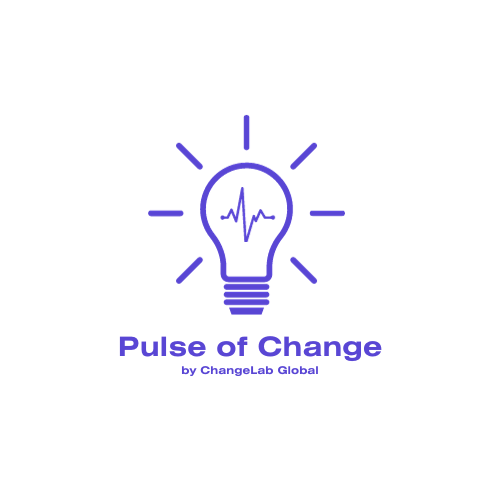
Dear Change Makers,
In my teenage years, I fought against the dictatorship in Serbia as a pro-democracy activist. We aimed to establish democracies like those in Germany, the United States, France, and the United Kingdom. However, in 1999, NATO countries bombed Serbia for 2.5 months to prevent the authoritarian regime from escalating the Kosovo war. I had to hide in fear in the basement during this time and felt confused. How could I feel about being bombed by the very societies I admired? Although the bombs were officially targeting the regime I fought against, I felt personally threatened and upset that my life worsened due to the actions of my supposed allies. This experience exposed me to the paradox of holding opposing truths - admiring these societies for their democratic values while feeling threatened by their military actions. I learned to recognize both the admirable aspects and imperfections of these societies, and offer criticism when necessary.
😲 We all encounter this paradox
We all encounter this paradox daily: Work-Life Balance vs. Career Ambition, Supporting Local Businesses vs. Budget Constraints, Healthy Lifestyle vs. Enjoying Life's Pleasures, Technological Advancement vs. Job Displacement, Us vs. Them. Rarely are things completely good or completely bad. Often, they have multiple sides that need to be considered and evaluated separately. How can we break free from this binary, black & white, simplistic mindset that traps us into tribal, zero-sum, and uncreative thinking?
🔀 Embrace the paradox!
Navigating life's paradoxes requires adaptivity, embracing complexity and empathetic leadership. It involves understanding that situations can be complex and don't always have clear-cut answers. Effective leaders actively listen, consider multiple perspectives, and are open to learning and adapting.
It's possible for something you admire to have faults, and for something you dislike to have redeeming qualities or a context that explains it. This requires empathy.
In today's polarized world, leadership is about escaping oversimplification. It's about recognizing the complexity within ourselves, our organizations, and our societies.
🤔 How do you do this? You need to anchor yourself in your values! For example, in the face of current global polarization, I am anchored in my values of human rights, non-violence, and pro-democracy. This allows me to recognize the parts that need to be condemned and the parts that need support and can be worked with in each individual, organizational, or societal conflict.
Anchoring in my values helps me escape tribalism and lean into my own ethical compass to determine where I can make a difference.
Here are some questions I ask myself:
What are my three core principles that I will use to evaluate this situation?
What are other plausible interpretations for why this is happening? (Always try to consider multiple interpretations of events)
If I put myself in the context of each side (considering how they were brought up, educated, treated, etc.), how would I turn out? How does that explain their behavior? (This is not about justification, but understanding)
What else do I need to learn? Who do I need to talk to in order to gain a multi-side perspective?
🎯 Leadership Insight: Leadership involves connecting different groups and finding a common path, even when they have conflicting perspectives/views. Leaders who think in complex ways understand the importance of various viewpoints, leading to more inclusive and effective decisions. Every individual, team, organization, or society has multiple internal viewpoints. Often, we only notice the most dominant one because it's the most visible. However, if we look closer, learn and dig deeper, we can uncover more than just this main viewpoint. Sometimes, we might even find a viewpoint similar to our own, trying to emerge. The more layers of complexity we recognize, the more accurately we can tailor our leadership actions.
📚 Book of the week: "Thinking, Fast and Slow" by Daniel Kahneman. This book provides insight into how our minds work, helping us understand the psychology behind our decision-making processes, including how we handle contradictory ideas.
"The Two Systems": Understanding Our Dual-Process Mind Kahneman introduces the concept of two systems of thought: System 1, which is fast, intuitive, and emotional; and System 2, which is slower, more deliberative, and logical. Recognizing these two systems can help us understand why we might struggle with paradoxes, as we balance instinctive reactions with thoughtful analysis.
"The Anchoring Effect": The Power of First Impressions This concept explains how initial impressions or information 'anchor' our subsequent thoughts and judgments. In the context of paradoxes, understanding this effect can help us realize why we might lean towards one side of a paradox and struggle to see the other side objectively.
"Cognitive Ease vs. Strain": Balancing Comfort and Challenge Kahneman discusses how our minds prefer cognitive ease, situations where things feel familiar and comfortable. Paradoxes, by nature, challenge this ease and require cognitive strain – deliberate thinking that can feel uncomfortable but is necessary for complex understanding.
"The Halo Effect": Seeing the Whole Picture The halo effect refers to our tendency to let our overall impression of a person, situation, or concept color our judgment about its various attributes. In reconciling paradoxes, it's important to be aware of this effect and strive to see both the positive and negative aspects of each side, rather than painting them with a broad brush based on our general impression.
💫 To support our collective mission, please share this newsletter with anyone who you think might benefit from weekly leadership insights: New Subscribers Link
✊ Until Next Time: ask yourself one of those four questions and see how complexity emerges.
Let your voice be heard and shape our future! Fill out the Q&A and feedback form now!